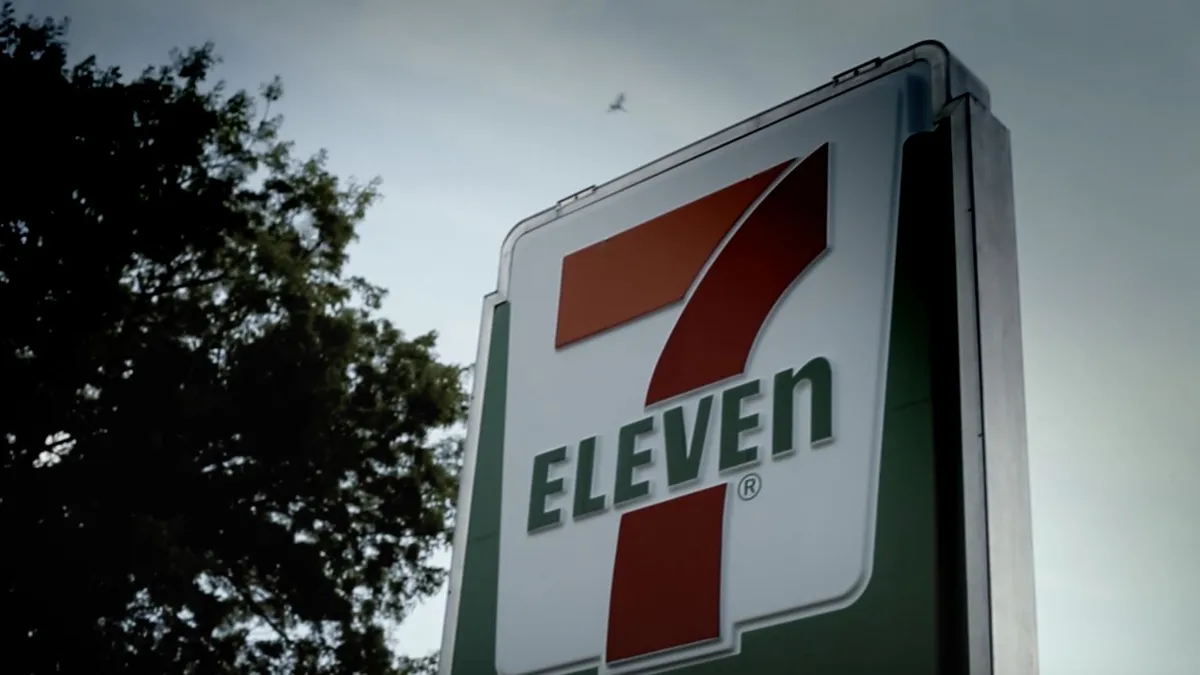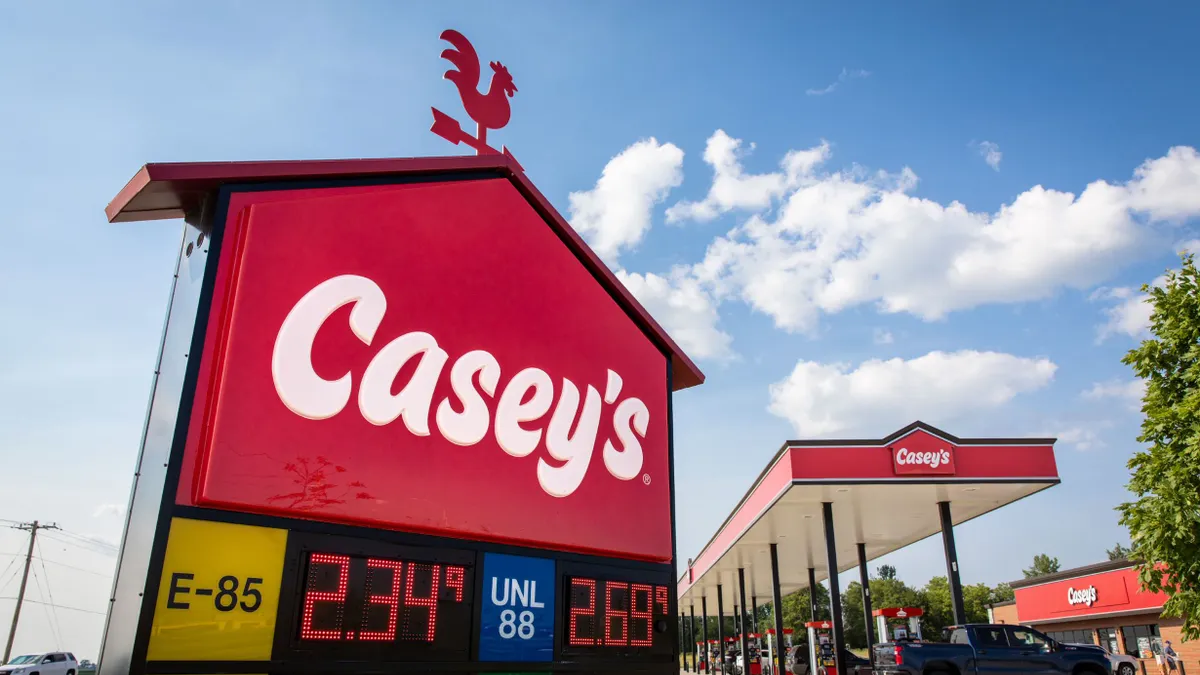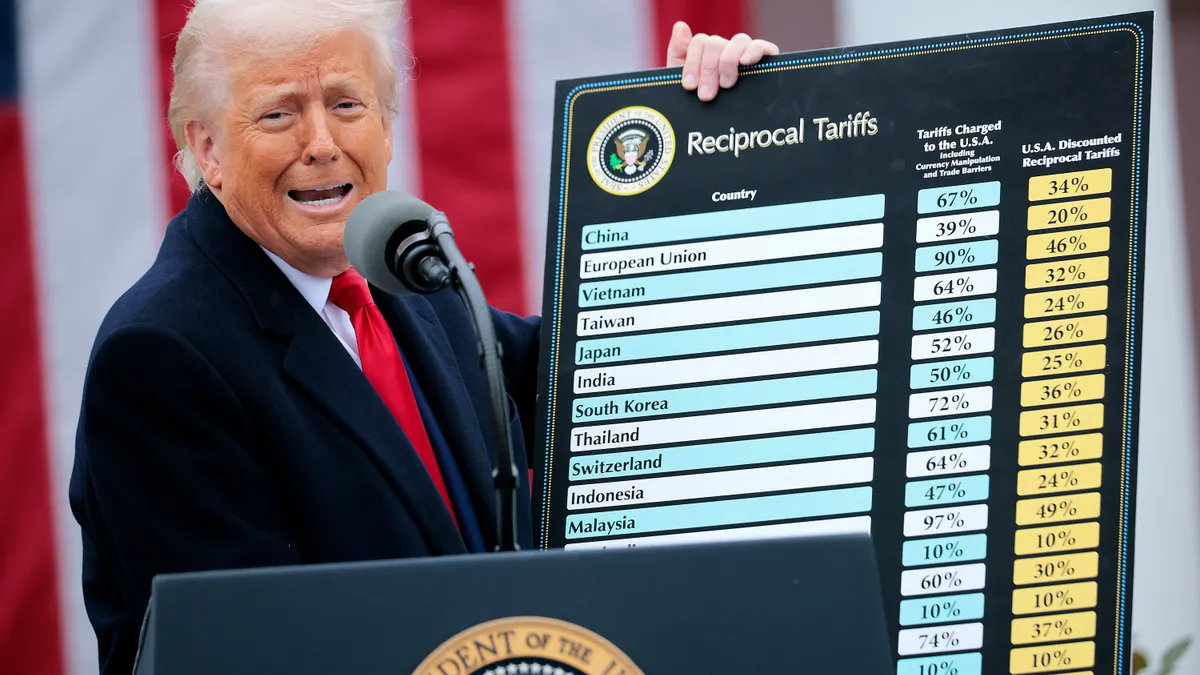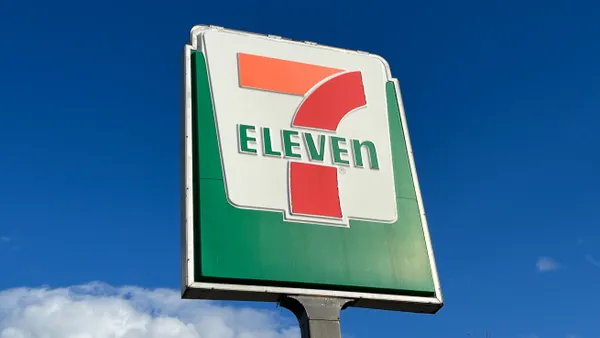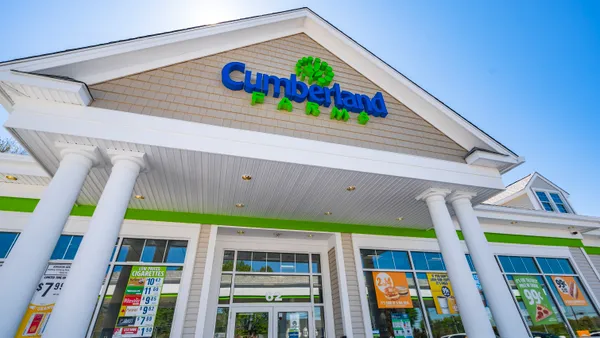Dive Brief:
- 7-Eleven sued two of its franchisees in California last week after it says it discovered that “hundreds of fraudulent transactions” occurred at six convenience stores between 2020 and 2023, according to lawsuits filed with the U.S. District Court for the Central District of California.
- Because of this alleged fraud, 7-Eleven terminated these franchise agreements. However, both franchisees are refusing to comply with their post-termination obligations and are still operating the stores as if they’re representing 7-Eleven. 7-Eleven is therefore suing to force them to vacate these stores, cease the use of its trademark and turn over inventory.
- This draws attention to the various challenges 7-Eleven and its franchisees have faced over the years, highlighted by several other lawsuits and even a lack of trust impacting their relationships.
Dive Insight:
7-Eleven is suing Gurtar Sandhu and SSS Realm Corporation, which has franchised three 7-Eleven c-stores in Los Angeles and Carson, California, since 2018; and Rajwinder Atwal and and S.S.S. Atwal, Inc., which has franchised three 7-Eleven c-stores in Fullerton and Brea, California since 2008.
7-Eleven’s asset protection team investigated both franchisees when their sales data “reflected an above average use of promotional discounts and manufacturer’s coupons.” The convenience retailer claims it found that both franchisees routinely falsified sales of tobacco products, and then applied manufacturer’s coupons or promotions to fake transactions to collect the financial incentives.
According to the lawsuit, these fraudulent tobacco sales and “bogus coupon redemption” sometimes occurred without any customer at the counter, no merchandise leaving the store and no money or coupons either being collected or placed in the register drawer.
Between January 2020 and November 2022, 7-Eleven claims SSS Realm reported around $114,000 more sales of NJOY products than its stores had in reported inventory. Meanwhile, S.S.S Atwal’s locations allegedly reported around $84,000 more sales of ON! Tobacco products, $59,000 more sales of NJOY items and $32,000 more sales of JUUL products than it had in reported inventory, according to the lawsuit.
According to 7-Eleven’s franchise agreements and termination notes, both operators are required to leave their premises and deliver 7-Eleven all its inventory. With neither franchisee doing so despite their franchise agreements being terminated, 7-Eleven has been “substantially and irreparably injured,” the lawsuit states.
7-Eleven did not respond by press time to comment on the situation.
This is one of several lawsuits between 7-Eleven and some of its franchisees through the years. Its most recent came last summer, when some of its Boston-area franchisees combated a 2022 ruling that declared franchisees as independent contractors as opposed to employees.
7-Eleven filed these lawsuits against its franchisees the same week it sued a manufacturer and supplier of its 7-Select iced cappuccino bottled beverages for withholding $1.6 million the c-store retailer says it’s owed.
Irving, Texas-based 7-Eleven operates, franchises and/or licenses more than 13,000 stores in the U.S. and Canada. It also operates and franchises Speedway, Stripes, Laredo Taco Company and Raise the Roost Chicken and Biscuits locations.



